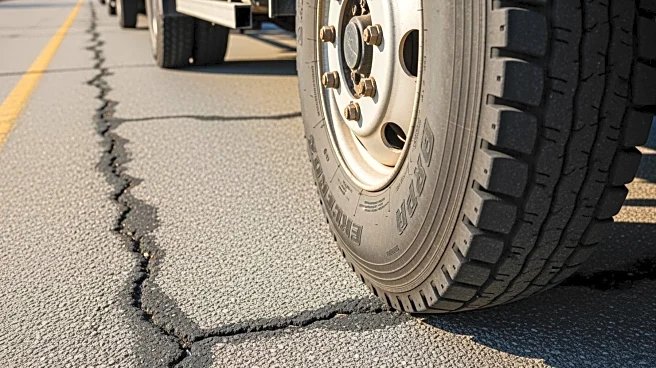What's Happening?
Researchers at New York University are examining the impact of heavy-duty electric trucks on New York City's infrastructure. The study predicts a significant increase in the number of e-trucks by 2030
and 2050, which could lead to higher repair costs for roads and bridges. The Brooklyn-Queens Expressway and other heavily traveled routes are particularly vulnerable to damage from these heavier vehicles. While e-trucks offer environmental benefits, their increased weight requires larger batteries and more electricity, posing challenges for infrastructure maintenance and repair.
Why It's Important?
The rise of e-trucks presents a dual challenge: balancing environmental benefits with infrastructure sustainability. As cities like New York transition to electric vehicles, they must address the potential strain on roads and bridges. The study's findings could influence transportation policy and infrastructure investment decisions, as stakeholders seek to mitigate the impact of heavier vehicles. The need for weigh-in-motion sensors and other technologies to monitor vehicle weight may become more pressing, affecting regulatory approaches and industry practices.
What's Next?
The study suggests implementing weigh-in-motion sensors to monitor e-truck weights and ensure compliance with regulations. Policymakers may need to consider infrastructure upgrades and investments to accommodate the growing number of e-trucks. The findings could lead to discussions about balancing environmental goals with infrastructure sustainability, potentially influencing future transportation policies and industry standards.











